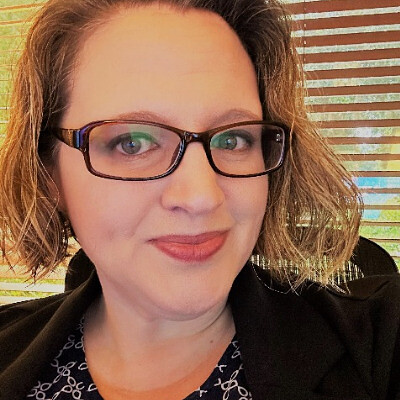Lightning Talk Description: Working together for impact and developing and sustaining IPE, whether interprofessional education, collaborative practice, interprofessional clinical learning environments, or interprofessional academic-community partnerships, requires leadership to attend to the well-being of individuals and teams, as well as their own well-being. While the Quadruple Aim brought attention to practitioner burnout and its deleterious impact on the experience of care of people, the health of populations, and the value and cost of care, it stands to reason that the well-being of practitioners also impacts the true north of the Quintuple Aim -- health equity. More recently there is growing concern about the impact of burnout on health professions faculty. Just as the care of the patient requires care of the practitioner, the care of the student and early career professional requires care of the faculty.
Burnout prevention and mitigation efforts often focus on self-care strategies such as mindfulness and stress management. A 2019 National Academies report recognized the importance of a systemic approach to addressing burnout. A pair of reports by the Advisory Committee on Interdisciplinary, Community-Based Linkages (ACICBL), within the Health Resources and Services Administration (HRSA) of the U.S. Department of Health and Human Services (HHS), called for evidence-based practice models (2019) and systems-oriented approaches (2022) to prevent and address burnout and foster individual/team well-being to advance interprofessional collaborative practice. Finally, a 2022 Surgeon General’s Advisory on Building a Thriving Health Workforce asserted that burnout is a workplace phenomenon requiring organization-led solutions.
This presentation by the 2022-23 cohort of the American Interprofessional Health Collaborative (AIHC) Mentoring Program will share mentor and mentee experiences related to workplace well-being, factors that foster and hinder stress and burnout for faculty and practitioners, tools to evaluate workplace well-being, and models, strategies, and best practices for IPE leaders to support the well-being of faculty and practitioners at an organizational level. Preventing and addressing faculty and practitioner burnout is essential to advance the Quintuple Aim and contributes to better care, better value, and better education in academia, practice, and community settings.
In support of improving patient care, this activity is planned and implemented by The National Center for Interprofessional Practice and Education Office of Interprofessional Continuing Professional Development (National Center OICPD). The National Center OICPD is accredited by the Accreditation Council for Continuing Medical Education (ACCME), the Accreditation Council for Pharmacy Education (ACPE), and the American Nurses Credentialing Center (ANCC) to provide continuing education for the healthcare team.
As a Jointly Accredited Provider, the National Center is approved to offer social work continuing education by the Association of Social Work Boards (ASWB) Approved Continuing Education (ACE) program. Organizations, not individual courses, are approved under this program. State and provincial regulatory boards have the final authority to determine whether an individual course may be accepted for continuing education credit. The National Center maintains responsibility for this course. Social workers completing this course receive continuing education credits.
The National Center OICPD (JA#: 4008105) is approved by the Board of Certification, Inc. to provide continuing education to Athletic Trainers (ATs).
This activity was planned by and for the healthcare team, and learners will receive Interprofessional Continuing Education (IPCE) credit for learning and change.


Physicians: The National Center for Interprofessional Practice and Education designates this live activity for AMA PRA Category 1 Credits™. Physicians should only claim credit commensurate with their participation.
Physician Assistants: The American Academy of Physician Assistants (AAPA) accepts credit from organizations accredited by the ACCME.
Nurses: Participants will be awarded contact hours of credit for attendance at this workshop.
Nurse Practitioners: The American Academy of Nurse Practitioners Certification Program (AANPCP) accepts credit from organizations accredited by the ACCME and ANCC.
Pharmacists and Pharmacy Technicians: This activity is approved for contact hours.
Athletic Trainers: This program is eligible for Category A hours/CEUs. ATs should claim only those hours actually spent in the educational program.
Social Workers: As a Jointly Accredited Organization, the National Center is approved to offer social work continuing education by the Association of Social Work Boards (ASWB) Approved Continuing Education (ACE) program. Organizations, not individual courses, are approved under this program. State and provincial regulatory boards have the final authority to determine whether an individual course may be accepted for continuing education credit. The National Center maintains responsibility for this course. Social workers completing this course receive continuing education credits.
IPCE: This activity was planned by and for the healthcare team, and learners will receive Interprofessional Continuing Education (IPCE) credits for learning and change.
Learners can claim CE credit by completing the Daily Evaluation.











